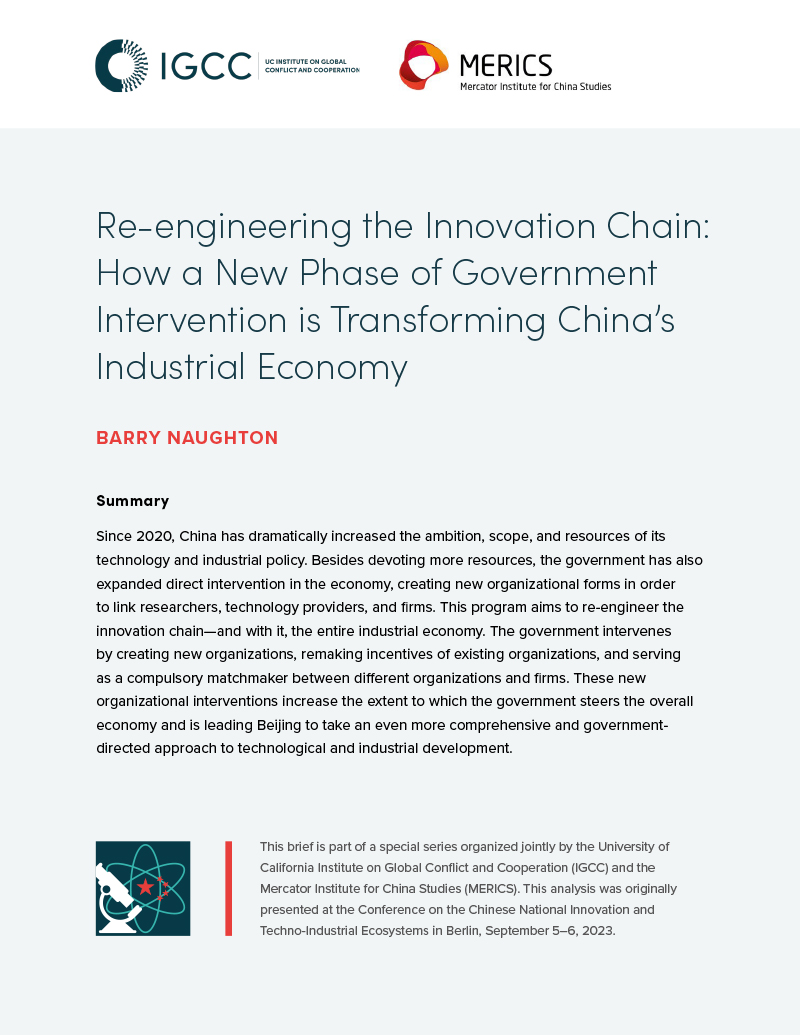How Government Intervention is Transforming China’s Industrial Economy

In this policy brief, IGCC affiliate Barry Naughton explores the more aggressive role that China’s government is taking in techno-industrial policy, and the extent to which these new interventions are fundamentally reshaping the relationship between government and enterprise.
DownloadSince 2020, China has dramatically increased the ambition, scope, and resources of its technology and industrial policy. The government has also expanded direct intervention in the economy, creating new organizational forms in order to link researchers, technology providers, and firms. This program aims to re-engineer the innovation chain—and with it, the entire industrial economy. In this policy brief, Barry Naughton, Sokwanlok Chair of Chinese International Affairs at the School of Global Policy and Strategy at UC San Diego, analyzes the implications of these dramatic interventions. He argues that China’s program is weakly planned, scattershot, and incremental; highly protectionist in nature; and driven by security concerns. The economic impact of these moves, Naughton says, will almost certainly be negative—for China and for the world.
This brief is part of a special series organized jointly by the University of California Institute on Global Conflict and Cooperation (IGCC) and the Mercator Institute for China Studies (MERICS). This analysis was originally presented at the Conference on the Chinese National Innovation and Techno-Industrial Ecosystems in Berlin, September 5–6, 2023.
Thumbnail credit: Datamar News